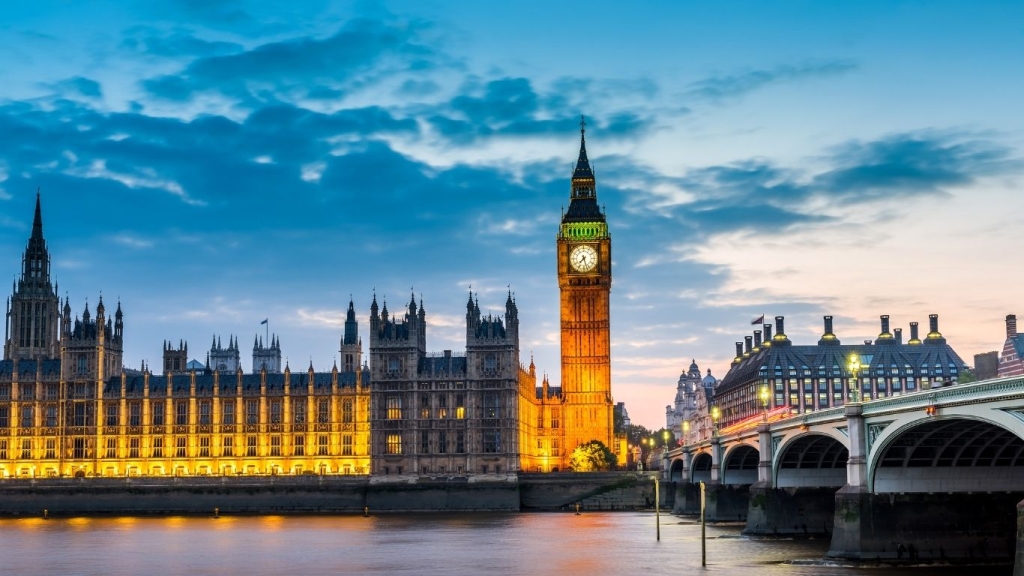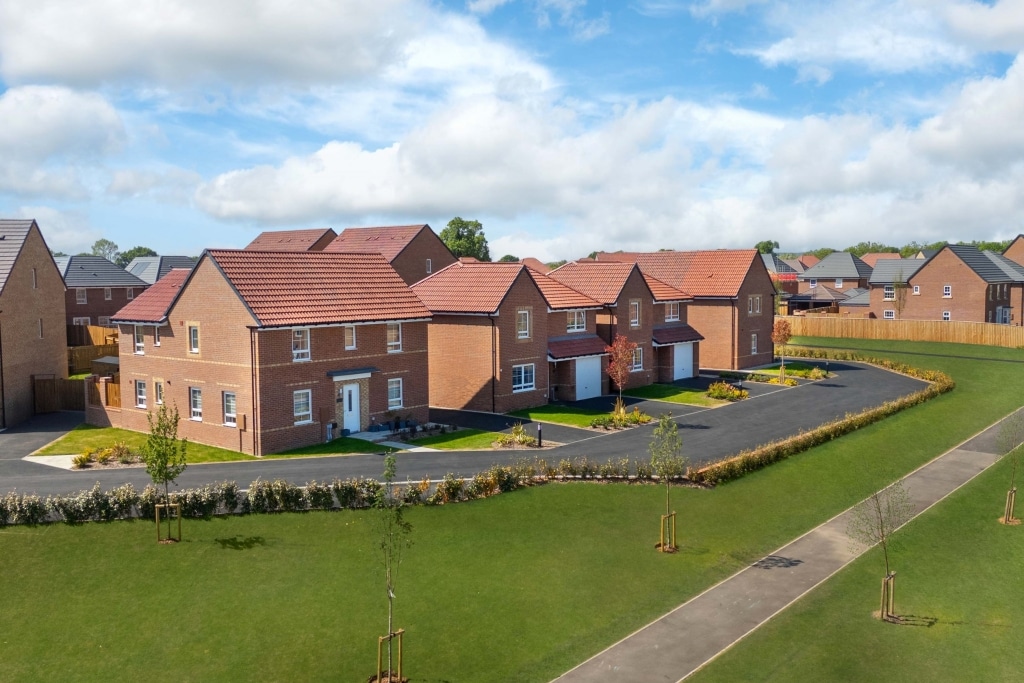
Your Homes Overseas Magazine!
Discover the best destinations, property tips, and lifestyle insights from around the world.
GET YOUR FREE MAGAZINE HERE!

Discover the best destinations, property tips, and lifestyle insights from around the world.
GET YOUR FREE MAGAZINE HERE!

Discover the key to successful property investment and home buying in the United Kingdom
Have you ever dreamt of owning your own charming slice of the United Kingdom – perhaps a stylish apartment in the heart of London, a cosy cottage nestled in the countryside, or a classic townhouse in a historic market town? Many international buyers have, and it’s no surprise why the UK remains one of the most desirable and secure destinations for overseas property investment.
The UK offers a powerful combination of rich heritage, vibrant cities, strong legal protections, and long-term capital growth. Whether you’re looking for a lifestyle base, a second home, or a high-performing investment with strong rental demand, the UK property market presents a wide variety of options for every kind of buyer.
The best part? Property opportunities exist across the country – from bustling urban centres to scenic rural escapes – and with the right guidance, you can navigate this mature and rewarding market with ease.
That’s where our FREE and independently researched United Kingdom Buyer’s Guide comes in – packed with expert insights, legal tips, and up-to-date market knowledge to help you make confident and informed decisions every step of the way.

An up-to-date report on the UK property market — what’s trending, which regions are seeing the highest growth, and where to find real long-term value
An overview of the most popular property types for international buyers — including city apartments, countryside homes, buy-to-let investments, and off-plan developments
How to work with trusted estate agents, developers, and legal professionals to ensure a safe, transparent, and stress-free buying experience
Real-life stories and practical advice from expats and international buyers who’ve successfully purchased property across the UK
Information on relocating or retiring to the UK — including visa routes, residency options, and an in-depth cost-of-living overview
Tips on saving money when transferring foreign currency or financing your UK property purchase
Essential guidance on living in the UK — covering tax requirements, healthcare access, education options, and property ownership laws
Plus, more insider insights to help make your move to the UK smooth, smart, and financially secure
Whether you’re looking for a vibrant lifestyle, a stable investment, or the perfect retirement base, our UK Buyer’s Guide is the ideal place to begin your journey.
If you’re thinking about buying property in the UK, you’re not alone. The United Kingdom is a top choice because it offers a stable market, strong legal system, and great places to live. People enjoy the mix of cities, countryside, and historic towns. Whether you’re looking for a home or an investment, this guide will help.
Here at International Property Alerts, we make things easier. This guide explains each part of the process. You’ll learn about the costs, legal steps, and how to buy if you’re not from the United Kingdom. It’s written in simple words so you can feel confident every step of the way.
The UK has one of the most stable housing markets in the world. So, prices grow steadily because homes are always in demand. This means buying property in the UK can help you build long-term wealth. Areas like London, Manchester, and Birmingham continue to attract buyers and renters.
There is always a need for rental homes in the UK. Students, workers, and families often look for good places to stay. Therefore, this creates steady rental income for owners. If you plan to rent out your property, buying property in the UK can be a great choice.
Property in the UK often increases in value over time. When you buy at the right price, you can sell later for more. As a result, this makes it a safe option for investors who want steady growth.
The UK has clear property laws, which protect buyers and owners. So, this makes the process simple and fair. With our services, you can find the right property faster and with less stress.
People from all over the world invest in the UK market. They see it as a safe place to grow their money. By buying property in the UK, you gain a valuable asset that can give both income and long-term profit.
When you start buying property in the UK, there are rules to follow. These rules keep buyers and sellers safe. So, you must know who owns the home and the land. You also need to follow steps that make the sale fair.
You can buy a freehold or a leasehold. With a freehold, you own the home and the land. You don’t pay ground rent. On the other hand, with a leasehold, you only own the home for a set time. You pay extra fees, and the land belongs to someone else.
Commonhold is mostly for flats. It means all flat owners share the building. You and others take care of the costs together. To clarify, there is no landlord, so you have more control.
Your lawyer will do checks called searches. These checks show if there are problems with the home. They look for things like flood risk or planning rules. They also check who owns the land.
Conveyancing is a big word for the legal steps of buying. A lawyer or expert helps you with it. To clarify, they write papers, check details, and make sure everything is correct. It starts when your offer is accepted and ends when your name is on the record.
Conveyancing can take about 10 to 12 weeks. It costs money for the lawyer and the checks. In fact, leasehold homes often cost a little more to handle. You may also pay a fee to register your name.

The first step in buying property in the UK is research. Therefore, you need to know the area, property prices, and types of homes. Look online and check different towns and cities. For instance, think about schools, transport, and nearby shops. This helps you find a place that fits your needs. Take time to compare prices. This way, you avoid paying too much.
Before you start viewing homes, speak to a lender. Pre-approval tells you how much money you can borrow. It also shows sellers that you are serious. In other words, this step makes the process smoother. Always check interest rates and fees. This will help you plan your budget better.
Location is very important when buying property in the UK. Some areas are great for families, while others are better for renting. Visit different neighbourhoods and see which one feels right. In addition, check crime rates, local schools, and transport links. A good location helps the value of your home grow over time.
You need to know the basic process. These buying property in the UK steps include finding a property, making an offer, and hiring a solicitor. After that, legal checks and contracts follow. Each step is important to avoid problems. Take your time and ask questions if you feel unsure.
The first step in buying property in the UK is to study the housing market. Look at prices in different towns and cities. Check what types of homes fit your needs. Also, visit websites, read local news, and speak to agents. This research helps you understand where and when to buy.
You need a solicitor to handle legal work. They check documents, do searches, and guide you through contracts. So, choose one with good reviews and clear fees. That is to say, a good solicitor makes buying property in the UK steps much easier.
You need a solicitor to handle legal work. They check documents, do searches, and guide you through contracts. So, choose one with good reviews and clear fees. That is to say, a good solicitor makes buying property in the UK steps much easier.
Your solicitor will prepare the contracts. Both you and the seller sign them to confirm the deal. You pay a deposit, often 10% of the price. Once contracts are exchanged, you are legally bound to buy the property.
Completion is the final step of buying property in the UK. Your solicitor sends the remaining money to the seller. You then receive the keys and own the property. The solicitor also registers your name with the Land Registry. This step finalises the entire process.
The price of homes varies by region. In 2025, the average cost is around £270,000 to £295,000. Areas like London are far more expensive, with prices often over £500,000. Smaller towns and northern cities usually have lower prices. Understanding these differences helps you set the right budget when buying property in the UK.
Stamp Duty Land Tax (SDLT) applies when the home price is over £125,000. Rates start at 2% for homes between £125,001 and £250,000. They increase to 5% up to £925,000, 10% up to £1.5 million, and 12% for anything higher. If you’re a non-UK resident, you must pay an extra 2%. In short, this is a key cost for buying property in the UK for non-resident.
You will need a solicitor or conveyancer to handle all legal steps. These fees usually cost over £1,000. The fee covers contracts, local searches, and registering your property with the Land Registry. So, always ask for a clear quote to avoid hidden charges.
A property survey checks the condition of the home. It can reveal repairs or risks. Also, survey fees range from a few hundred pounds, depending on how detailed they are. Mortgage lenders also require a valuation, which may have extra costs.
When buying property in the UK as a foreigner, extra bank checks and higher stamp duty are common. You will also face moving costs, which average £300–£600, plus ongoing bills like home insurance and council tax. Council tax alone can start at around £1,000 a year.
Mortgages often come with arrangement or booking fees. These may add up to £1,500 or more. Check all fees upfront, as some lenders let you add them to the mortgage balance.
There are no strict rules stopping foreigners from buying property in the UK. You can buy a home or an investment property even if you live abroad. The legal process is the same for everyone. However, banks may ask for more documents if you need a mortgage. They might require proof of income and a larger deposit.
Foreign buyers must pay an extra 2% stamp duty tax. This applies when buying property in the UK for non-resident. The extra charge is on top of normal stamp duty rates. You may also face higher fees for banking or money transfers. Planning your budget early helps you avoid surprises.
The UK property market is strong and steady. Homes in good areas can grow in value over time. Rental demand is high, which makes property a good source of income. Cities like London and Manchester attract global renters, making investments safer. That’s why many people look at our properties when exploring investment options. For these reasons, people often ask if is it worth buying property in the UK. The answer depends on your goals, but many find it worthwhile.
Foreign buyers should check local property rules and taxes. It’s smart to hire a solicitor who understands international transactions. Lenders may also offer fewer mortgage options to foreigners. Because of this, some buyers pay in cash or seek loans from banks in their home country.
Location is important when buying property in the UK. Foreigners often choose big cities because of better rental returns. Some also invest near universities where student housing demand is high. Visiting the area before buying is always a good idea.

Owning a home also means paying yearly property taxes. Council tax is the main ongoing cost. It is based on the value and location of your property. Charges can start at about £1,000 per year and vary by council area. If you own rental property, you also need to report rental income for tax purposes.
Understanding taxes is vital when planning your purchase. They affect the total price and future profits. Those who are buying property in the UK for investment must plan for both purchase and selling costs. By knowing the tax rules, you can avoid surprises and make better choices. Proper planning helps you keep more of your earnings and stay within your budget.
When buying property in the UK, stamp duty is a key cost. You pay this tax if the property price is above £125,000. The rate starts at 2% and increases with higher property values. For example, homes priced between £250,001 and £925,000 are taxed at 5%. If you are not a UK resident, you must pay an extra 2% on top of these rates.
If you sell your property for a profit, you might pay capital gains tax. This tax applies to second homes or investment properties. The rate depends on your income and the size of the gain. Basic rate taxpayers pay 18%, while higher rate taxpayers pay 28%. If it is your main home, you usually don’t pay this tax.
When buying property in the UK, location is the key to success. Choose areas with good transport, schools, and shops. Properties in growing towns or near universities often gain value faster. So, visit the area at different times to understand its vibe.
If you want rental income, check demand before you buy. Flats in cities or near train stations rent easily. Family homes close to schools are also popular. Therefore, set rent prices based on nearby properties. Good tenants stay longer if the property is well-maintained.
Simple upgrades can raise the property’s value. Fresh paint, modern kitchens, and better lighting make a big difference. Always budget for repairs and updates. A well-kept home attracts buyers and renters quickly.
Property values often rise slowly but steadily. Buying in areas with new projects or transport links can bring higher returns over time. So, think about holding the property for years to see the best growth. Patience is part of property success.
Track all costs from the start. Include taxes, repairs, and mortgage fees in your budget. This avoids problems later and helps you see real profits. Those who plan well often make better decisions when buying a property in the UK.
Property rules and taxes can change. Keep learning about the market and local trends. Speaking to experts, like solicitors or agents, can help you stay on track. With the right planning, your property can bring income and grow in value over time.
Start your journey with confidence when buying property in the UK. With the right knowledge, you can make smart choices and secure a valuable investment. Plan your steps, understand the costs, and choose the right location. For expert help and guidance, feel free to contact us today.
Yes, foreigners can buy property in the UK without restrictions. In fact, the legal process is mostly the same as it is for UK residents. However, non-residents may need a bigger deposit and must pay extra stamp duty.
You must pay for the home itself, legal fees, stamp duty, and surveys. There are also ongoing costs like council tax and home insurance. So, if you’re a non-resident, you may pay higher taxes and fees.
Yes, many people find UK property a good investment. That is to say, prices rise over time, and rental demand is strong in most cities. With the right location and planning, it can bring income and long-term value.
Start with research, get mortgage pre-approval, and find the right home. Next, make an offer, hire a solicitor, and complete legal checks. The final steps are exchanging contracts and getting the keys.
You can get a mortgage from a UK lender, or pay in cash. Foreign buyers may face more checks and higher interest rates. So, always compare your options and plan your budget early.
Compare listings
ComparePlease enter your username or email address. You will receive a link to create a new password via email.